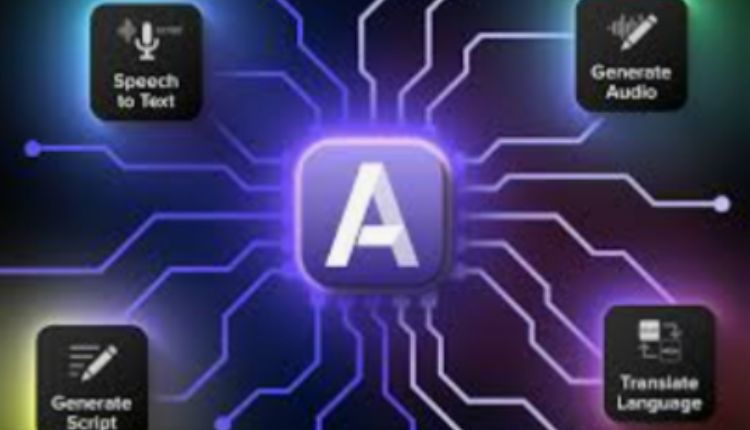Audio transcription, the process of converting spoken language into written text, has become a highly valuable tool across various sectors. From enhancing accessibility to streamlining business operations, the ability to transcribe audio into accurate text opens up new opportunities for efficiency, comprehension, and communication. Whether used in education, healthcare, or legal environments, audio transcription provides benefits that go far beyond the simple act of documenting conversations.
Enhancing Accessibility for All
One of the most immediate benefits of audio transcription is improving accessibility for individuals with hearing impairments. According to the World Health Organization, over 430 million people globally have disabling Industries hearing loss. For these individuals, transcriptions provide a way to engage with spoken content they would otherwise miss. Whether it’s an online video, a podcast, or a conference call, transcription ensures that everyone has equal access to the information being communicated.
Moreover, transcription services also enhance comprehension for non-native speakers who may struggle to understand rapid or complex speech. When spoken content is transcribed into text, it can be more easily processed at the reader’s pace, making it possible to review the material multiple times for clarity. This function is especially valuable in educational settings where students from different linguistic backgrounds need to engage with complex subject matter. An audio transcription that you can easily create with reputable audio transcription services can thus bridge communication gaps, ensuring that important content reaches a broader audience.
Boosting Productivity in Business
In the business world, audio transcription plays a crucial role in improving productivity and streamlining workflow. Meetings, interviews, presentations, and brainstorming sessions often contain key insights and decisions, but they can be difficult to recall with perfect accuracy. By transcribing these sessions, companies can create a reliable record of what was discussed. This not only aids in decision-making but also ensures that nothing gets overlooked or forgotten.
Transcription services also save time by allowing employees to quickly search for specific parts of a meeting or conversation without needing to listen to entire audio recordings. For example, a company executive may want to revisit a particular point discussed during a quarterly meeting. Instead of sifting through hours of audio, they can simply search for relevant keywords in the transcript, saving both time and effort.
Revolutionizing the Legal Field
In the legal profession, accuracy and thorough documentation are paramount. Lawyers, judges, and paralegals routinely handle a vast amount of information, and even the smallest error can have serious consequences. Audio transcription services have become a cornerstone of legal processes by ensuring that Industries every word spoken in court hearings, depositions, and legal interviews is captured accurately.
Court reporters, who have traditionally been responsible for documenting legal proceedings, now work alongside transcription technologies to produce precise records. These transcriptions serve as official documents that can be referenced in future cases, appeals, or legal disputes. In high-stakes environments, having an exact transcript of spoken testimony is critical for the integrity of the legal system.
Supporting Medical Documentation and Patient Care
In healthcare, accurate documentation is essential for ensuring patient safety and improving care outcomes. Audio transcription plays an important role in transforming the way medical professionals record patient interactions. Doctors, nurses, and other healthcare providers often use voice Industries notes to capture their observations, treatment plans, and diagnoses in real time. By transcribing these notes into text, medical transcription services create detailed patient records that are easy to review and share with other healthcare professionals.
Accurate transcriptions help prevent misunderstandings and ensure that patient information is correctly communicated across different departments. For instance, a doctor’s verbal instructions recorded during a consultation can be transcribed and included in the patient’s file, reducing the risk of miscommunication during treatment. This can be particularly important in fast-paced healthcare environments, where errors or omissions in documentation can lead to adverse outcomes.
Driving Media and Content Creation
In the world of media, journalism, and content creation, audio transcription offers significant benefits by helping creators work more efficiently. Journalists, for example, often conduct long interviews that contain vital information for their stories. Transcribing these interviews allows them to reference exact quotes, ensuring accuracy in reporting. This also speeds up the writing process, as reporters can quickly locate key sections of an interview within a transcript rather than scrubbing through hours of audio.
Podcasters and video content creators also find transcription useful, not only for creating accessible content for their audiences but also for improving search engine optimization (SEO). Transcribed audio Industries content can be more easily indexed by search engines, increasing the discoverability of videos or podcasts. This is particularly valuable for creators who rely on organic search traffic to grow their audience.
Strengthening Education and Learning
Audio transcription has become a vital tool in education, providing students and teachers with a more flexible way to engage with information. Recorded lectures, seminars, and discussions can be transcribed into text, allowing students to revisit complex material at their own pace. This is particularly helpful for students with learning disabilities, non-native speakers, or those who may struggle with auditory processing.
Transcriptions offer an additional layer of accessibility by making it easier for students to search for specific topics or keywords in a lecture. Instead of rewatching or listening to an entire session, they can quickly scan the transcript to find relevant Industries information. This saves time and allows for more efficient studying.






